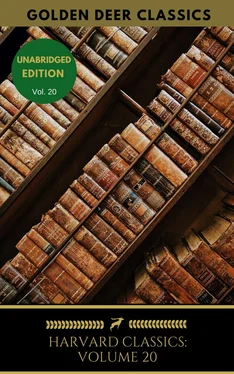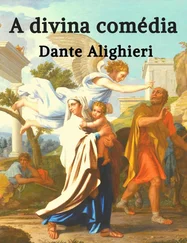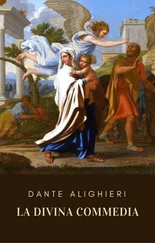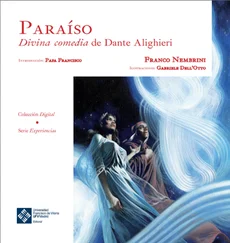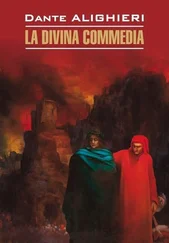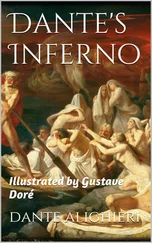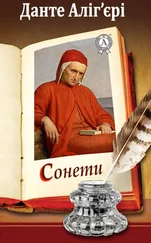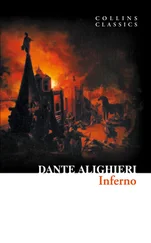Array Dante Alighieri - Harvard Classics Volume 20
Здесь есть возможность читать онлайн «Array Dante Alighieri - Harvard Classics Volume 20» — ознакомительный отрывок электронной книги совершенно бесплатно, а после прочтения отрывка купить полную версию. В некоторых случаях можно слушать аудио, скачать через торрент в формате fb2 и присутствует краткое содержание. Жанр: unrecognised, на английском языке. Описание произведения, (предисловие) а так же отзывы посетителей доступны на портале библиотеки ЛибКат.
- Название:Harvard Classics Volume 20
- Автор:
- Жанр:
- Год:неизвестен
- ISBN:нет данных
- Рейтинг книги:5 / 5. Голосов: 1
-
Избранное:Добавить в избранное
- Отзывы:
-
Ваша оценка:
- 100
- 1
- 2
- 3
- 4
- 5
Harvard Classics Volume 20: краткое содержание, описание и аннотация
Предлагаем к чтению аннотацию, описание, краткое содержание или предисловие (зависит от того, что написал сам автор книги «Harvard Classics Volume 20»). Если вы не нашли необходимую информацию о книге — напишите в комментариях, мы постараемся отыскать её.
1. The Divine Comedy, by Dante Alighieri
Also available:
The Complete Harvard Classics Collection (51 Volumes + The Harvard Classic Shelf Of Fiction)
50 Masterpieces You Have To Read Before You Die (Golden Deer Classics)
Harvard Classics Volume 20 — читать онлайн ознакомительный отрывок
Ниже представлен текст книги, разбитый по страницам. Система сохранения места последней прочитанной страницы, позволяет с удобством читать онлайн бесплатно книгу «Harvard Classics Volume 20», без необходимости каждый раз заново искать на чём Вы остановились. Поставьте закладку, и сможете в любой момент перейти на страницу, на которой закончили чтение.
Интервал:
Закладка:
Deprived, and set them at this strife, which needs
No labor’d phrase of mine to set it off.
Now mayst thou see, my son! how brief, how vain,
The goods committed into Fortune’s hands,
For which the human race keep such a coil!
Not all the gold that is beneath the moon,
Or ever hath been, of these toil-worn souls
Might purchase rest for one.” I thus rejoin’d:
“My guide! of these this also would I learn;
This Fortune, that thou speak’st of, what it is,
Whose talons grasp the blessings of the world.”
He thus: “O beings blind! what ignorance
Besets you! Now my judgment hear and mark.
He, whose transcendent wisdom passes all,
The heavens creating, gave them ruling powers
To guide them; so that each part shines to each,
Their light in equal distribution pour’d.
By similar appointment he ordain’d,
Over the world’s bright images to rule,
Superintendence of a guiding hand
And general minister, which, at due time,
May change the empty vantages of life
From race to race, from one to other’s blood,
Beyond prevention of man’s wisest care:
Wherefore one nation rises into sway,
Another languishes, e’en as her will
Decrees, from us conceal’d, as in the grass
The serpent train. Against her nought avails
Your utmost wisdom. She with foresight plans,
Judges, and carries on her reign, as theirs
The other powers divine. Her changes know
None intermission: by necessity
She is made swift, so frequent come who claim
Succession in her favors. This is she,
So execrated e’en by those whose debt
To her is rather praise: they wrongfully
With blame requite her, and with evil word;
But she is blessed, and for that recks not:
Amidst the other primal beings glad
Rolls on her sphere, and in her bliss exults.
Now on our way pass we, to heavier woe
Descending: for each star is falling now,
That mounted at our entrance, and forbids
Too long our tarrying.” We the circle cross’d
To the next steep, arriving at a well,
That boiling pours itself down to a foss
Sluiced from its source. Far murkier was the wave
Than sablest grain: and we in company
Of the inky waters, journeying by their side,
Enter’d, though by a different track, beneath.
Into a lake, the Stygian named, expands
The dismal stream, when it hath reach’d the foot
Of the gray wither’d cliffs. Intent I stood
To gaze, and in the marish sunk descried
A miry tribe, all naked, and with looks
Betokening rage. They with their hands alone
Struck not, but with the head, the breast, the feet,
Cutting each other piecemeal with their fangs.
The good instructor spake: “Now seest thou, son!
The souls of those, whom anger overcame.
This too for certain know, that underneath
The water dwells a multitude, whose sighs
Into these bubbles make the surface heave,
As thine eye tells thee wheresoe’er it turn.
Fix’d in the slime, they say: ‘Sad once were we,
In the sweet air made gladsome by the sun,
Carrying a foul and lazy mist within:
Now in these murky settlings are we sad.’
Such dolorous strain they gurgle in their throats,
But word distinct can utter none.” Our route
Thus compass’d we, a segment widely stretch’d
Between the dry embankment, and the core
Of the loath’d pool, turning meanwhile our eyes
Downward on those who gulp’d its muddy lees;
Nor stopp’d, till to a tower’s low base we came.
Canto VIII
Argument.—A signal having been made from the tower, Phlegyas, the ferryman of the lake, speedily crosses it, and conveys Virgil and Dante to the other side. On their passage, they meet with Filippo Argenti, whose fury and torment are described. They then arrive at the city of Dis, the entrance whereto is denied, and the portals closed against them by many Demons.
My theme pursuing, I relate, that ere
We reach’d the lofty turret’s base, our eyes
Its height ascended, where we mark’d uphung
Two cressets, and another saw from far
Return the signal, so remote, that scarce
The eye could catch its beam. I, turning round
To the deep source of knowledge, thus inquired:
“Say what this means; and what, that other light
In answer set: what agency doth this?”
“There on the filthy waters,” he replied,
“E’en now what next awaits us mayst thou see,
If the marsh-gendered fog conceal it not.”
Never was arrow from the cord dismiss’d,
That ran its way so nimbly through the air,
As a small bark, that through the waves I spied
Toward us coming, under the sole sway
Of one that ferried it, who cried aloud:
“Art thou arrived, fell spirit?”—“Phlegyas, Phlegyas, [49]
This time thou criest in vain,” my lord replied;
“No longer shalt thou have us, but while o’er
The slimy pool we pass.” As one who hears
Of some great wrong he hath sustain’d, whereat
Inly he pines: so Phlegyas inly pined
In his fierce ire. My guide, descending, stepp’d
Into the skiff, and bade me enter next,
Close at his side; nor, till my entrance, seem’d
The vessel freighted. Soon as both embark’d,
Cutting the waves, goes on the ancient prow,
More deeply than with others it is wont.
While we our course o’er the dead channel held,
One drench’d in mire before me came, and said:
“Who art thou, that thus comest ere thine hour?”
I answer’d: “Though I come, I tarry not:
But who art thou, that art become so foul?”
“One, as thou seest, who mourn:” he straight replied.
To which I thus: “In mourning and in woe,
Curst spirit! tarry thou. I know thee well,
E’en thus in filth disguised.” Then stretch’d he forth
Hands to the bark; whereof my teacher sage
Aware, thrusting him back: “Away! down there
To the other dogs!” then, with his arms my neck
Encircling, kiss’d my cheek, and spake: “O soul,
Justly disdainful! blest was she in whom
Thou wast conceived. He in the world was one
For arrogance noted: to his memory
No virtue lends its lustre; even so
Here is his shadow furious. There above,
How many now hold themselves mighty kings,
Who here like swine shall wallow in the mire,
Leaving behind them horrible dispraise.”
I then: “Master! him fain would I behold
Whelm’d in these dregs, before we quit the lake.”
He thus: “Or ever to thy view the shore
Be offer’d, satisfied shall be that wish,
Which well deserves completion.” Scarce his words
Were ended, when I saw the miry tribes
Set on him with such violence, that yet
For that render I thanks to God, and praise.
“To Filippo Argenti!” [50]cried they all:
And on himself the moody Florentine
Turn’d his avenging fangs. Him here we left,
Nor speak I of him more. But on mine ear
Sudden a sound of lamentation smote,
Whereat mine eye unbarr’d I sent abroad.
And thus the good instructor: “Now, my son
Draws near the city, that of Dis is named,
With its grave denizens, a mighty throng.”
I thus: “The minarets already, Sir!
There, certes, in the valley I descry,
Gleaming vermilion, as if they from fire
Had issued.” He replied: “Eternal fire,
That inward burns, shows them with ruddy flame
Illumed; as in this nether Hell thou seest.”
We came within the fosses deep, that moat
This region comfortless. The walls appear’d
Читать дальшеИнтервал:
Закладка:
Похожие книги на «Harvard Classics Volume 20»
Представляем Вашему вниманию похожие книги на «Harvard Classics Volume 20» списком для выбора. Мы отобрали схожую по названию и смыслу литературу в надежде предоставить читателям больше вариантов отыскать новые, интересные, ещё непрочитанные произведения.
Обсуждение, отзывы о книге «Harvard Classics Volume 20» и просто собственные мнения читателей. Оставьте ваши комментарии, напишите, что Вы думаете о произведении, его смысле или главных героях. Укажите что конкретно понравилось, а что нет, и почему Вы так считаете.
